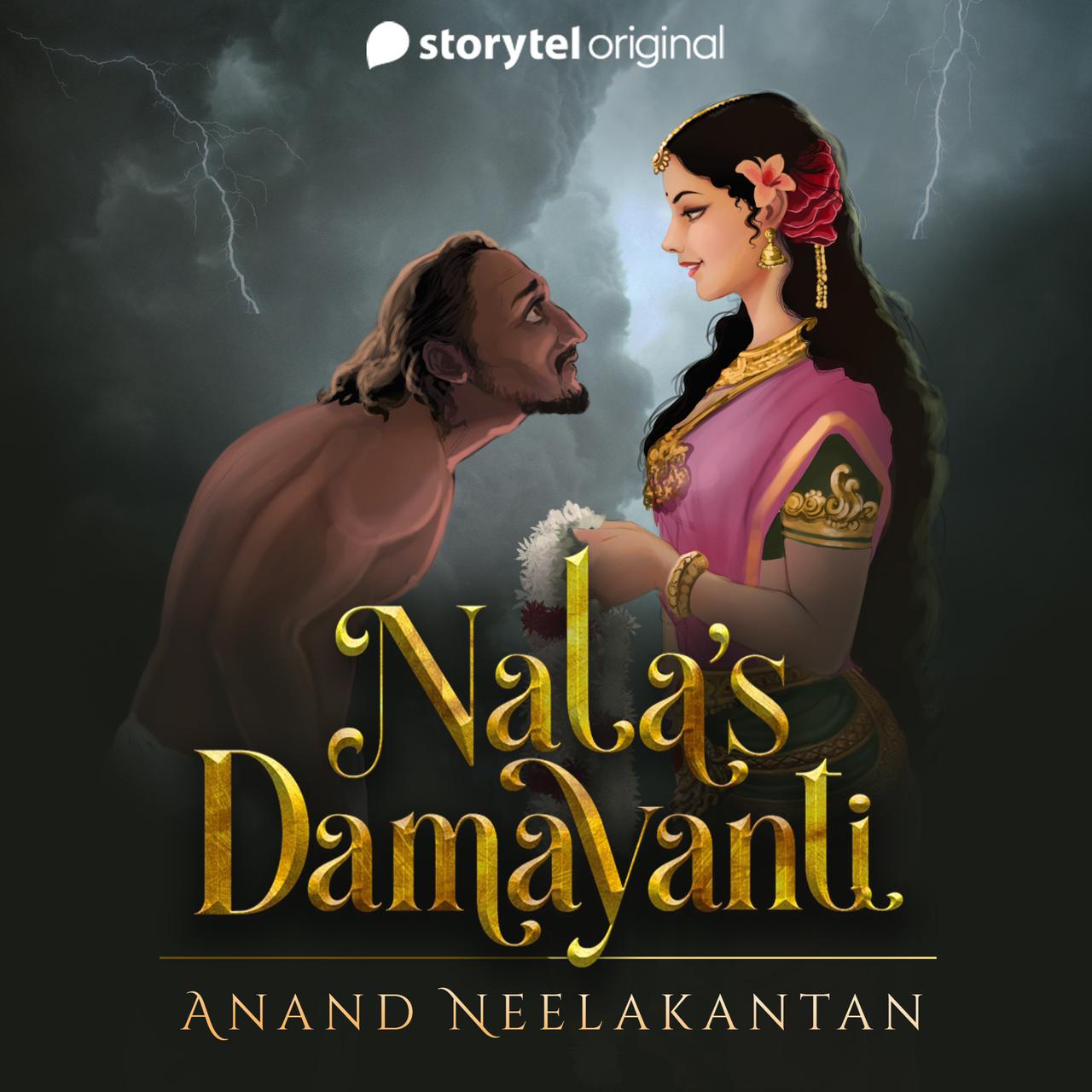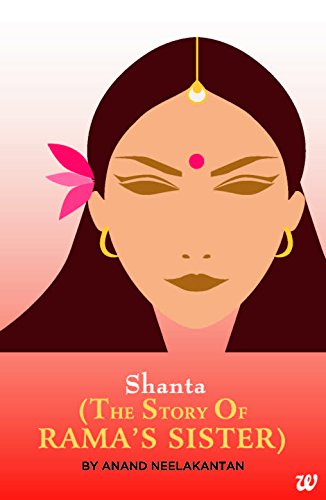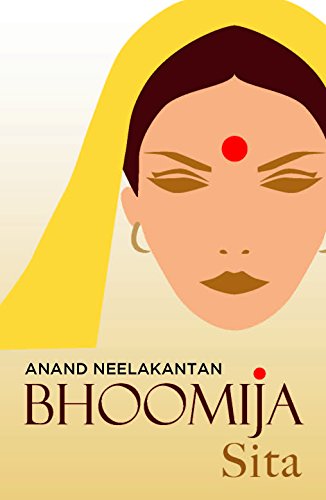ALL BOOKS
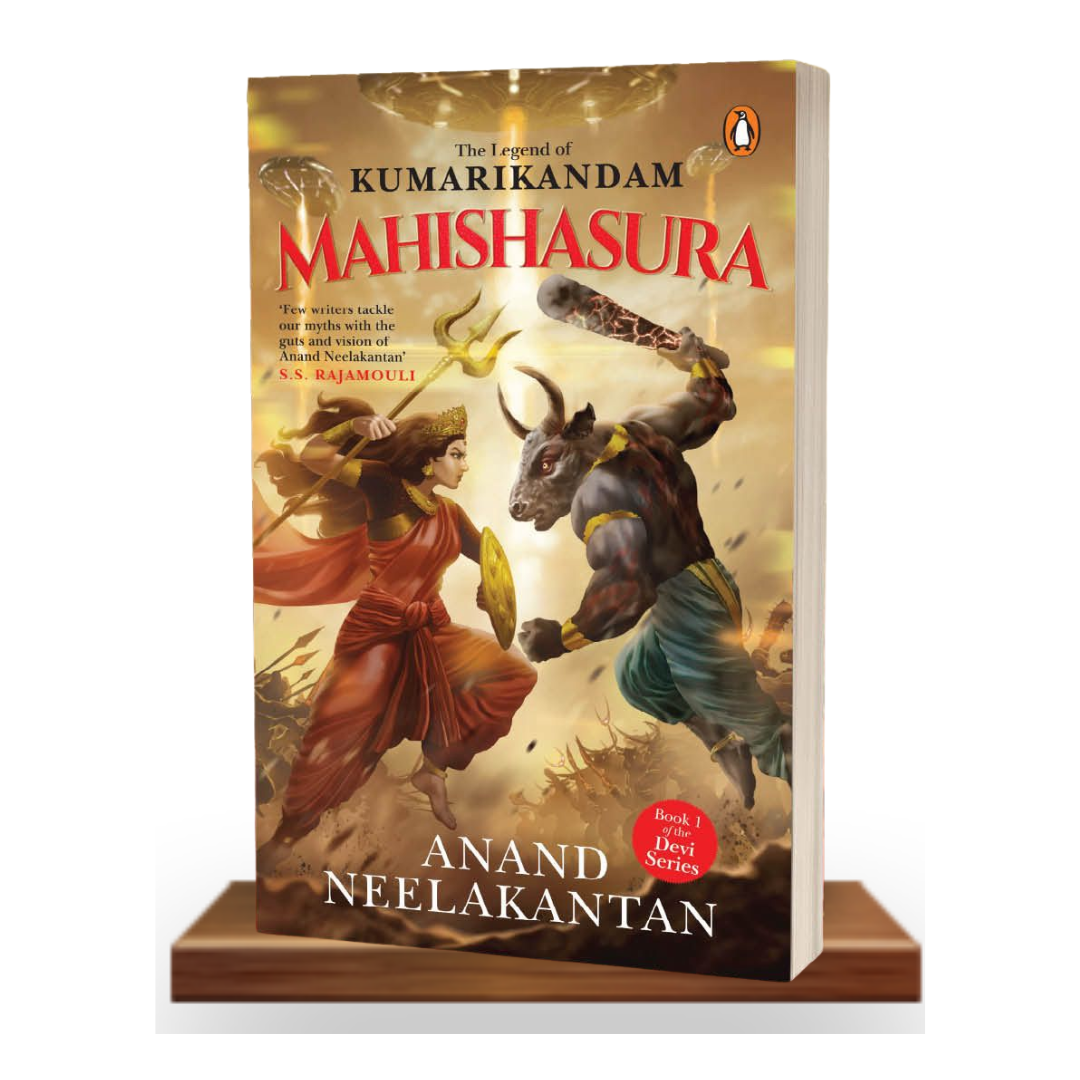
In the lost Archipelago of Kumarikandam, Queen Devi ruled when an alien invasion set forth on Earth. Driven by ambition and motivated by science, their leader Naqta brings to life a half-beast beast-half half-alien Mahishasura who has now taken over Kumarikandam. As the premonitions of Aggatiar, the sage comes to life, Devi is now faced with an intergalactic war against Mahishasura and his army to save her kingdom.
Set 70,000 years ago, Mahishasura is an ultimate ode to the supreme energy mentioned in the Devi Purana. An exploration of the feminine form of Parashakti, in the world of Anand Neelakandan, science, technology and AI clash with the long-lost tales from the Puranas, retelling Indian mythology for modern readers.

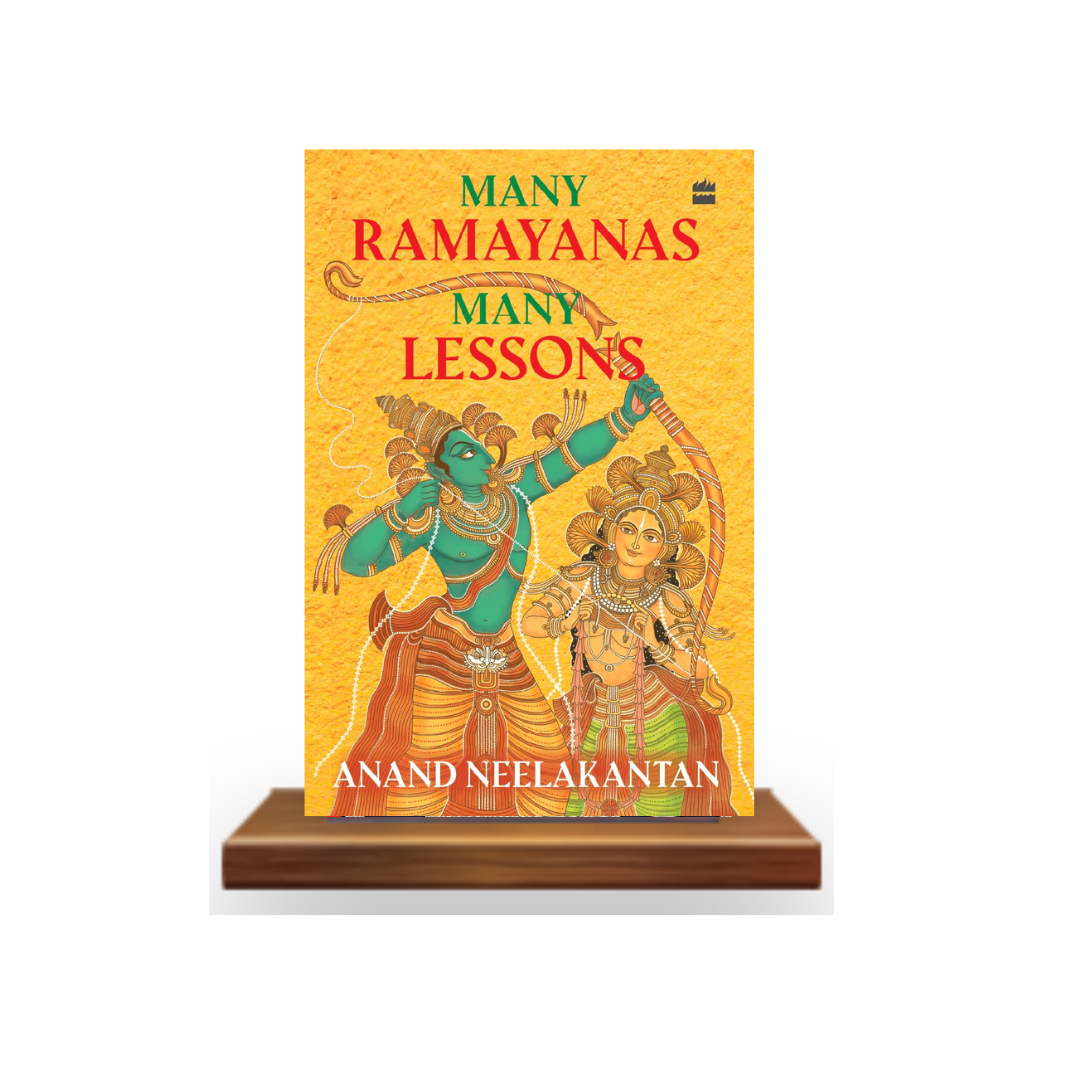
With countless retellings across Asia, spanning centuries, cultures and languages, the Ramayana has captured the imagination of generations. From oral traditions to ancient manuscripts and modern texts, these renderings offer countless perspectives on its characters, their situations and the lessons they impart. Did you know that in many folktales derived from the epic, Ravana’s sister Surpanakha is portrayed as a victim of a spurned love rather than an aggressor? Or that there is no mention of the famous Lakshmana Rekha, the boundary drawn around Sita, in the Valmiki Ramayana, one of the oldest versions of the epic? Or that in the Thai and Tibetan versions, Sita is identified as Ravana’s daughter, while in Central Asia’s Khotani Ramayana she marries both Rama and Lakshmana?
In Many Ramayanas, Many Lessons, myth-master Anand Neelakantan weaves together riveting stories and insightful commentary to explore what Valmiki may have intended in his original narrative and how the epic has mutated and evolved over thousands of years, sometimes in unimaginable ways. He invites us to dive into its depths, reflect on its nuances and discover the versions that resonate most with us. After all, the Ramayana isn’t just one story, reflecting a single truth-it is an enduring symbol of plurality and essential wisdom, and the merging of many truths.
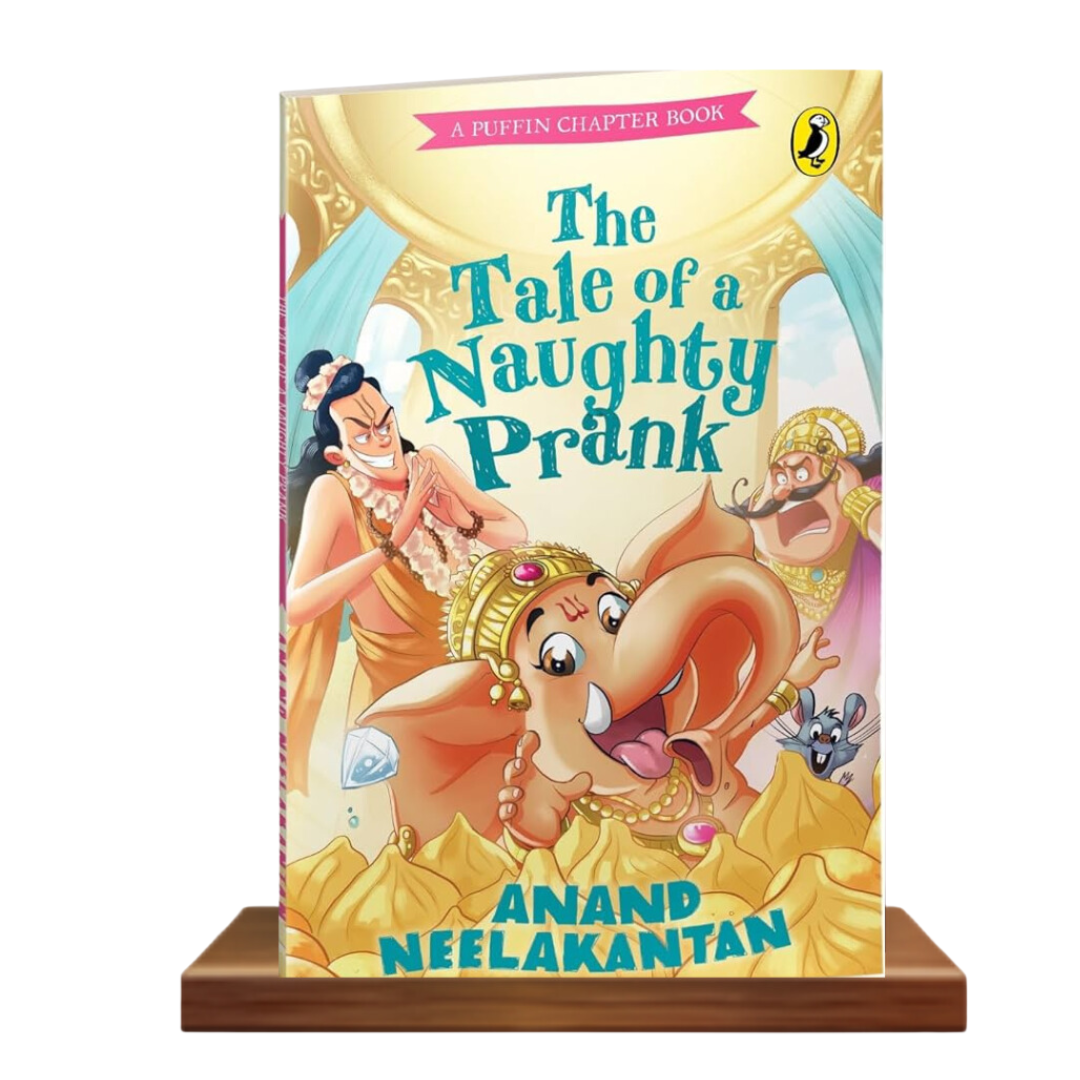
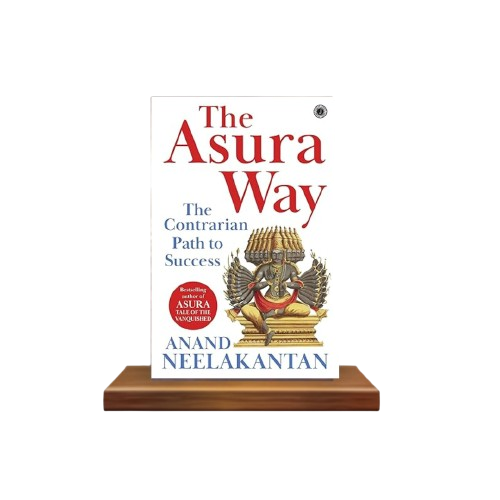
What if someone told you that those age-old lessons on which you’ve based your whole life are ineffective today?
What if they also told you that you could live a better, more fulfilling life by following the path of the Asuras?
Is it not worth investigating what made the Asuras so successful against even the gods and trying to learn from them in this age of strife, chaos, and discord?
In his first nonfiction work, Anand Neelakantan, the national bestselling author of Asura: Tale of the Vanquished, explores a contrarian way of living that makes more sense in this Kali Yuga.
With great skill and logic, Anand shatters the myths associated with the so-called six enemies of the mind—anger, passion, greed, infatuation, pride, and competitive spirit.
He explains how following conventional advice holds you back from achieving success and happiness in life. Using riveting examples from mythology, he demonstrates how these same six qualities can propel you in the direction of success and help you achieve your goals.
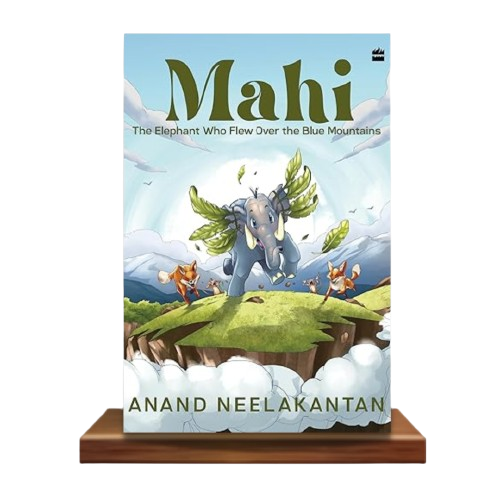
What if someone told you that those age-old lessons on which you’ve based your whole life are ineffective today?
What if they also told you that you could live a better, more fulfilling life by following the path of the Asuras?
Is it not worth investigating what made the Asuras so successful against even the gods and trying to learn from them in this age of strife, chaos, and discord?
In his first nonfiction work, Anand Neelakantan, the national bestselling author of Asura: Tale of the Vanquished, explores a contrarian way of living that makes more sense in this Kali Yuga.
With great skill and logic, Anand shatters the myths associated with the so-called six enemies of the mind—anger, passion, greed, infatuation, pride, and competitive spirit.
He explains how following conventional advice holds you back from achieving success and happiness in life. Using riveting examples from mythology, he demonstrates how these same six qualities can propel you in the direction of success and help you achieve your goals.
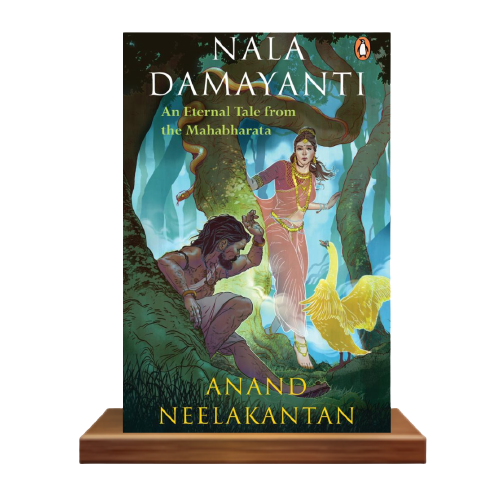
When Brahma the creator, fed up with humans, wants to undo this mistake and erase them, Hemanga the swan is horrified and pleads with Brahma to give him a chance to prove true love exists among mankind. The little bird, however, is sent to the kingdom of Vidarbha by Narada. That celestial troublemaker says Hemanga should unite Nala, the king of Nishadas, with Damayanti, the princess of Vidharbha.
Damayanti is a feisty beauty who has a mind of her own. She is no damsel in distress and has no need for a prince to rescue her. Nor has Nala any interest in finding love, for he is building a city for his tribe. Besides, he is a tribal king and thinks Damayanti is too above his position.
Hemanga almost succeeds in making them fall in love with each other when Kali hears of his plan. Trapped on earth as he is not the creator of Brahma, he can’t be free unless humans cease to exist. When he learns about Hemanga’s mission to save humans, he seizes his chance. If Damayanti gives up Nala, he can prove that no true love exists in a woman’s heart. Brahma will erase the human race and Kali will be free.
All that stands between the future of humans and the mighty Kali is a little bird and the determination of Damayanti.
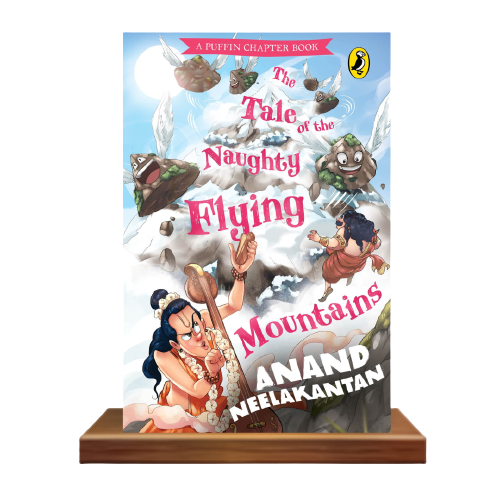
It might sound ridiculous, but it’s true! Himavan, the lord of the mountains, indeed had glorious wings under his
grand snowy cloak. But thanks to the mischief-maker, Narada, chaos ensued and the rest, well . . . went downhill! Narayana, Narayana!
The bestselling mythology author enters the children’s chapter book landscape with his humour-packed series that is sure to have you rolling down the hill with laughter.
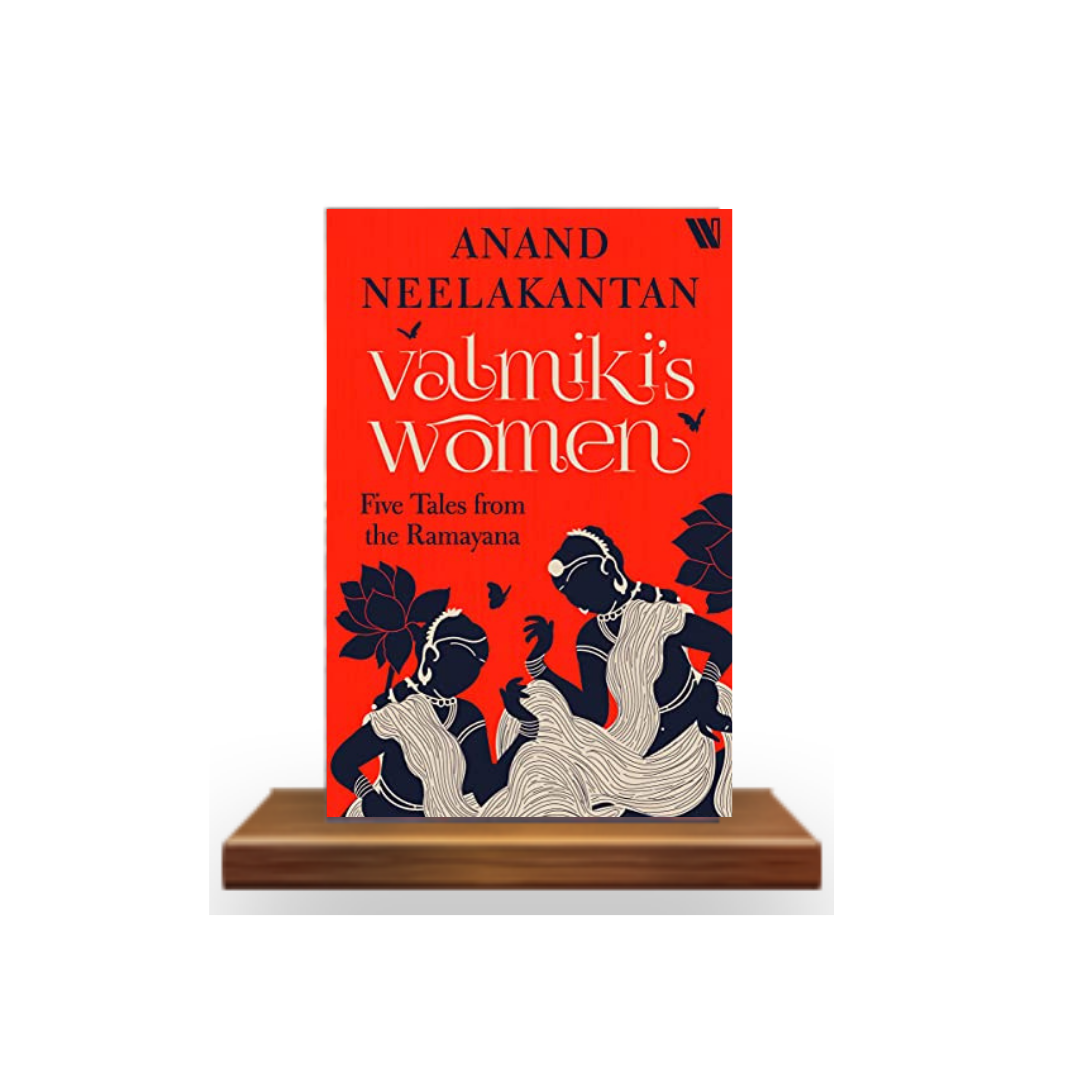
Would King Dasharatha even have his coveted sons were it not for the sacrifice of his daughter Shanta?
Was Manthara an evil, conniving handmaid to the queen, or a loving mother who tried to protect her ward from palace intrigues?
How did Meenakshi of the beautiful eyes transform into the embodiment of ugliness and immoral lust? In an epic that revolves around the life of a righteous prince, what role do the women play?
As bestselling author Anand Neelakantan peels back the layers of Valmiki’s timeless saga, these stories of ambition, love, devotion and courage shine through, inviting readers to look at the women anew. Lovers, sisters, wives and mothers who hold a complex epic together—these are the women of Valmiki’s Ramayana.
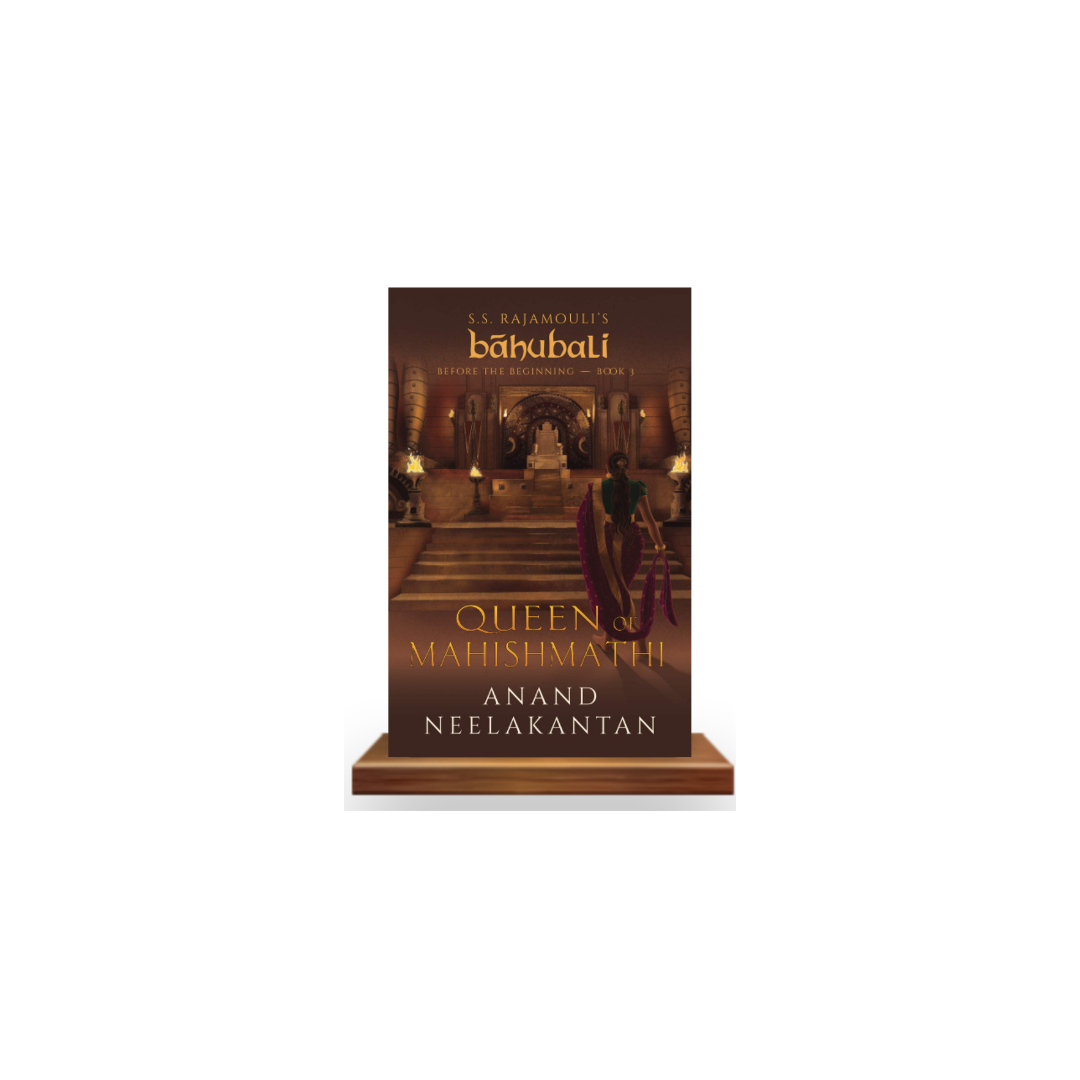
As Sivagami takes on the kingdom’s enemies, guided by Somadeva, she finds in her own manoeuvres an echo of the man she has always detested. In her journey to becoming the queen of Mahishmathi, Sivagami must choose between love and ambition, principles and deviousness, selflessness and envy. What does she hold on to, what does she let go? A thrilling, breathless read, Queen of Mahishmathi is the third and final book in the Bāhubali: Before the Beginning series.
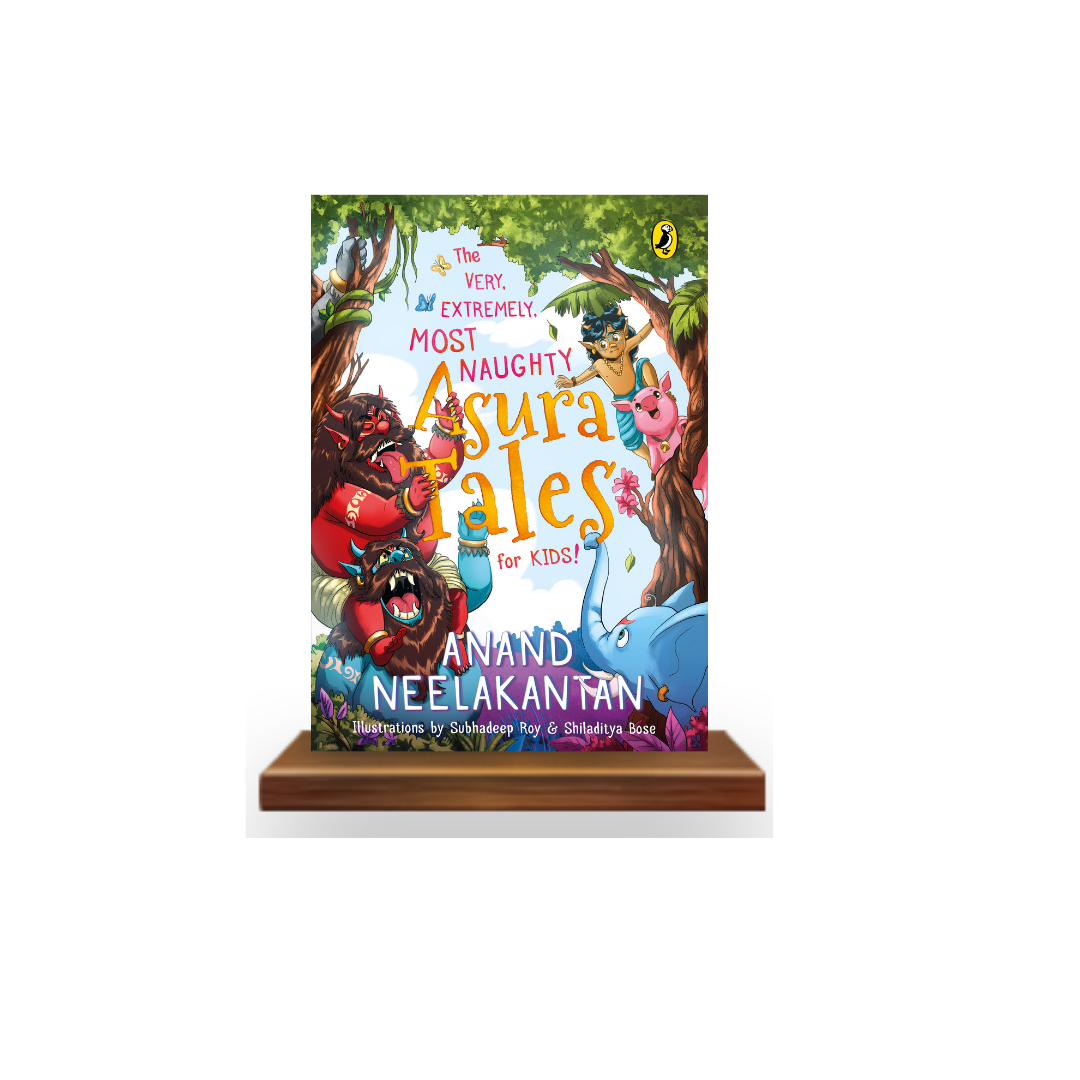
Aren’t we chubby, aren’t we cute?
Aren’t we lovely, as sweet as fruit?
Give us a bear hug, give us a kiss
Regret not later for giving it a miss.
Don’t go by these sweet words-for all little asura kids are naughty and troublesome and always up to something! Little will you know when you land in a muddy puddle or your long hair gets chopped off into a bob. They will prod, pull and tug you till you yell-just like the gods in the heavens, especially Vishnu and Shiva who are simply fed up!
Indulge in some very, extremely, most funny naughty tales of asura twins Kundakka and Mandakka, who hate going to school; clumsy Bhasma and pet pig Nakura, who create trouble in the village; brothers Atapi and Vatapi, who like to eat ninety-six cartfuls of fruits as dessert; the great Bana who claps with his thousand hands and so many more!
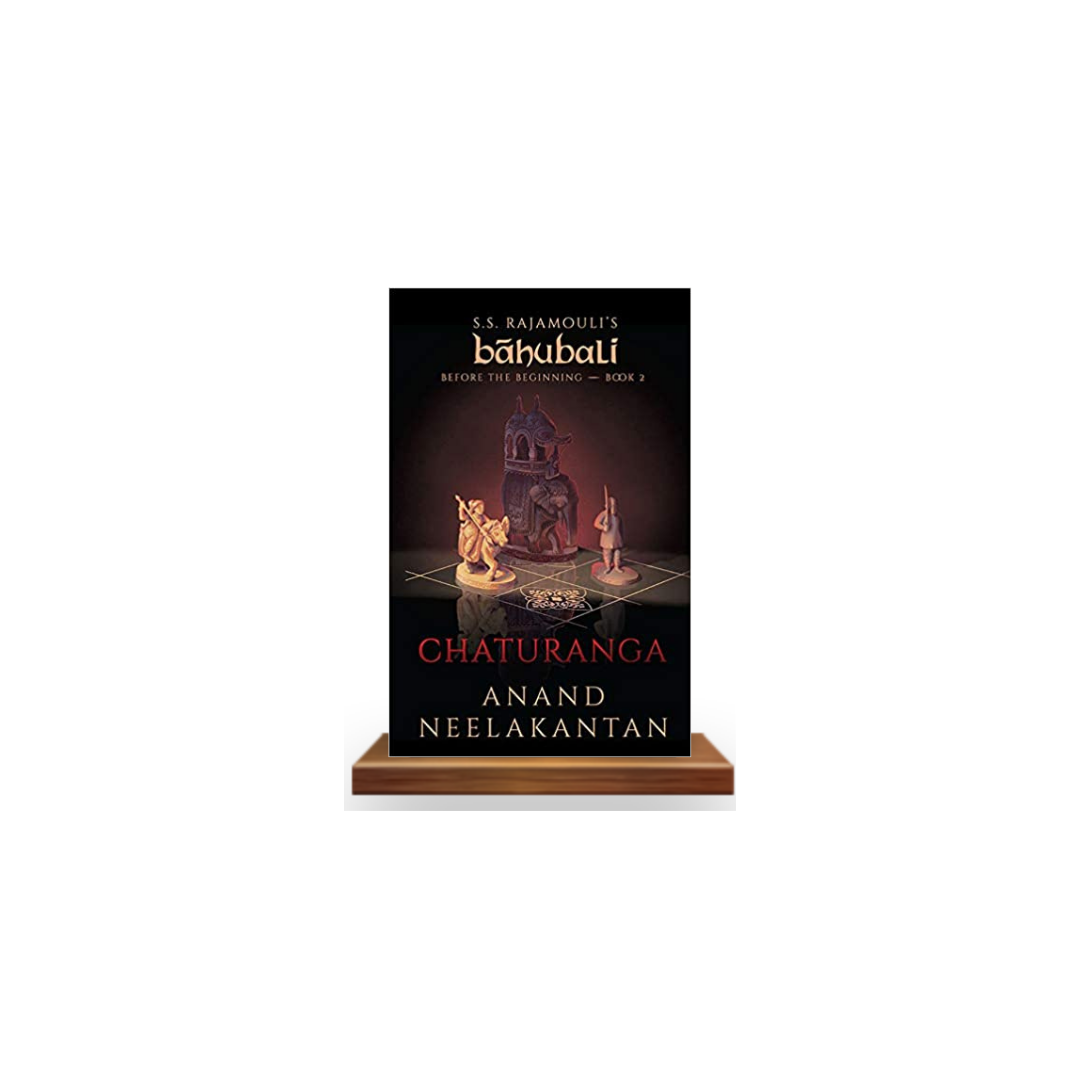
Anand Neelakantan seventh Book Chaturanga, the second book in the Baahubali trilogy series, was released on 6 August 2020
Political intrigue is astir in the land of Mahishmathi. After the failed coup staged by the Vaithalikas, Sivagami finds herself elevated to the position of bhoomipathi, from where she can more ably pursue her burning goal to avenge her father’s death. Meanwhile, there is a tussle between the two sons of the maharaja of Mahishmathi for the crown. And behind the scenes, a wily, skilled player of the political game moves the pieces to topple the king, Somadeva.
Will the maharaja—usually able to match wits with the best of them—prevail? Or will one of his many enemies finally be able to best him at this game of Chaturanga?
Set against a backdrop of ambition, love, loyalty, passion and greed, the second book in the Bāhubali: Before the Beginning series is a twist-a-minute page-turner—riveting and deeply satisfying.
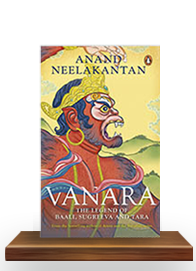
They were often mocked as the vanaras, the monkey men. Sandwiched between the never-ending war between the Deva tribes in the north and the Asura tribes in the south, the Vana Naras seemed to have lost all hope. But Baali was determined not to die a slave. Aided by his beloved brother, Sugreeva, Baali built a country for his people.
The capital city, Kishkindha, became a beacon of hope for emancipated slaves from across the world. It was a city of the people, by the people, for the people, where there was no discrimination based on caste, creed, language or the colour of skin.
For a brief period in history, it seemed as if mankind had found its ideal hero in Baali. But then fate intervened through the beautiful Tara, the daughter of a tribal physician. Loved by Baali and lusted after by Sugreeva, Tara became the cause of a fraternal war that would change history forever.
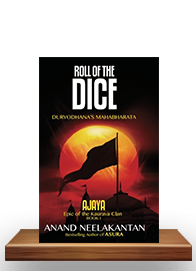
THE MAHABHARATA ENDURES AS THE GREAT EPIC OF INDIA. But while Jaya is the story of the Pandavas, told from the perspective of the victors of Kurukshetra; Ajaya is the narrative of the ‘unconquerable’ Kauravas, who were decimated to the last man.
At the heart of India’s most powerful empire, a revolution is brewing. Bhishma, the noble patriarch of Hastinapura, is struggling to maintain the unity of his empire. On the throne sits Dhritarashtra, the blind King, and his foreign-born Queen – Gandhari.
In the shadow of the throne stands Kunti, the Dowager-Queen, burning with ambition to see her firstborn become the ruler, acknowledged by all.
And in the wings: Parashurama, the enigmatic Guru of the powerful Southern Confederate, bides his time to take over and impose his will from mountains to the ocean.
Available in regional languages: Hindi, Tamil, Telugu, Marathi, Bahasa, Malyalam, Gujarati
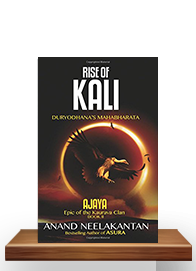
“THE MAHABHARATA ENDURES AS THE GREAT EPIC OF INDIA. While Jaya is the story of the Pandavas, told from the perspective of the victors of Kurukshetra, Ajaya is the tale of the Kauravas, who were decimated to the last man.
From the pen of the author who gave voice to Ravana in the national bestseller, ASURA, comes the riveting narrative which compels us to question the truth behind the Mahabharata.
THE DARK AGE OF KALI IS RISING, and every man and woman must choose between duty and conscience, honour and shame, life and death…
Available in regional languages: Telugu, Hindi, Marathi, Bahasa, Malayalam, Gujarati
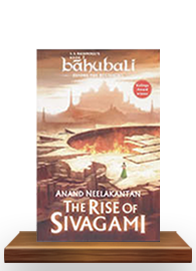
But is everything really as it appears, or is the empire hiding its own dirty secret?
Orphaned at a young age and wrenched away from her foster family, Sivagami is waiting for the day she can avenge the death of her beloved father, cruelly branded a traitor. Her enemy? None other than the king of Mahishmathi. With unflinching belief in her father’s innocence, the fiery young orphan is driven to clear his name and destroy the empire of Mahishmathi against all the odds. How far can she go in her audacious journey?
From the pen of masterful storyteller and bestselling author Anand Neelakantan, comes The Rise of Sivagami, the first book in the series Bahubali: Before the Beginning. A tale of intrigue and power, revenge and betrayal, the revelations in The Rise of Sivagami will grip the reader and not let go.
Available in regional languages: Gujarati, Tamil, Marathi, Hindi, Malayalam, Telugu, Bengali, Kannada
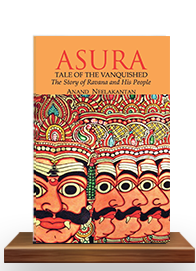
The epic tale of victory and defeat… The story of the Ramayana had been told innumerable times. The enthralling story of Rama, the incarnation of God, who slew Ravana, the evil demon of darkness, is known to every Indian. And in the pages of history, as always, it is the version told by the victors, that lives on. The voice of the vanquished remains lost in silence.
But what if Ravana and his people had a different story to tell? The story of the Ravanayana had never been told. Asura is the epic tale of the vanquished Asura people, a story that has been cherished by the oppressed outcastes of India for 3000 years.
Until now, no Asura has dared to tell the tale. But perhaps the time has come for the dead and the defeated to speak. “For thousands of years, I have been vilified and my death is celebrated year after year in every corner of India. Why? Was it because I challenged the Gods for the sake of my daughter? Was it because I freed a race from the yoke of caste-based Deva rule? You have heard the victor’s tale, the Ramayana. Now hear the Ravanayana, for I am Ravana, the Asura, and my story is the tale of the vanquished.” “I am a non-entity – invisible, powerless and negligible. No epics will ever be written about me.
I have suffered both Ravana and Rama – the hero and the villain or the villain and the hero. When the stories of great men are told, my voice maybe too feeble to be heard. Yet, spare me a moment and hear my story, for I am Bhadra, the Asura, and my life is the tale of the loser.” The ancient Asura empire lay shattered into many warring petty kingdoms reeling under the heel of the Devas. In desperation, the Asuras look up to a young saviour – Ravana. Believing that a better world awaits them under Ravana, common men like Bhadra decide to follow the young leader.
With a will of iron and a fiery ambition to succeed, Ravana leads his people from victory to victory and carves out a vast empire from the Devas. But even when Ravana succeeds spectacularly, the poor Asuras find that nothing much has changed for them. It is when that Ravana, by one action, changes the history of the world.
Available in regional languages: Hindi, Telugu, Tamil, Marathi, Kannada, Malayalam, Bengali, Bahasa
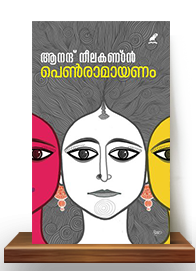
The first Malayalam book by Anand Neelakantan, which is based on legends, finds its story in Indian mythology.
Pen Ramayanam (Female Ramayana) is a compilation of stories written by Anand Neelakanta based on the female characters of the Ramayana.
The three short stories are Valmikam, Meenakshi-Ravana’s sister and Santha-Rama’s sister.
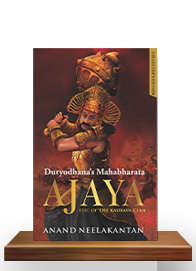
Roll of Dice and Rise of Kali of the Ajaya series now together in this special collector’s edition
THE MAHABHARATA ENDURES AS THE GREAT EPIC OF INDIA. Every Indian has grown up conditioned to the view that the Pandavas were virtuous and wronged, and the Kauravas were manipulative and evil. On a visit to Malanada Temple, Kerala, national bestselling author of ASURA, Anand Neelakantan, discovered the temple deity to be none other than Duryodhanan, the ostensible ‘villain’ of the Mahabharata. This astonishing discovery prompted him to delve deep into the narrative of the defeated Crown Prince of Hastinapura, and the Kaurava clan.
Ajaya challenges established views and compels us to think again. The book is all about the power of perception. It retells with compelling credibility, the epic events from Duryodhan’s (given name: Suryodhana), point of view. While Jaya is the story of the Pandavas, told from the perspective of the victors of Kurukshetra; Ajaya is the narrative of the ‘unconquerable’ Kauravas, who were decimated to the last man. At the heart of India’s most powerful empire, a revolution is brewing. Bhishma, the noble patriarch of Hastinapura, is struggling to maintain the unity of his empire.
On the throne sits Dhritarashtra, the blind King, and his foreign-born Queen – Gandhari. In the shadow of the throne stands Kunti, the Dowager-Queen, burning with ambition to see her firstborn become the ruler, acknowledged by all. Amidst the chaos, Prince Suyodhana, heir of Hastinapura, stands tall, determined to claim his birthright and act according to his conscience.
He is the maker of his own destiny – or so he believes. While in the corridors of the Hastinapura palace, a foreign Prince plots to destroy India.
Short Stories Books
Invite as Speaker
mail@asura.co.in


